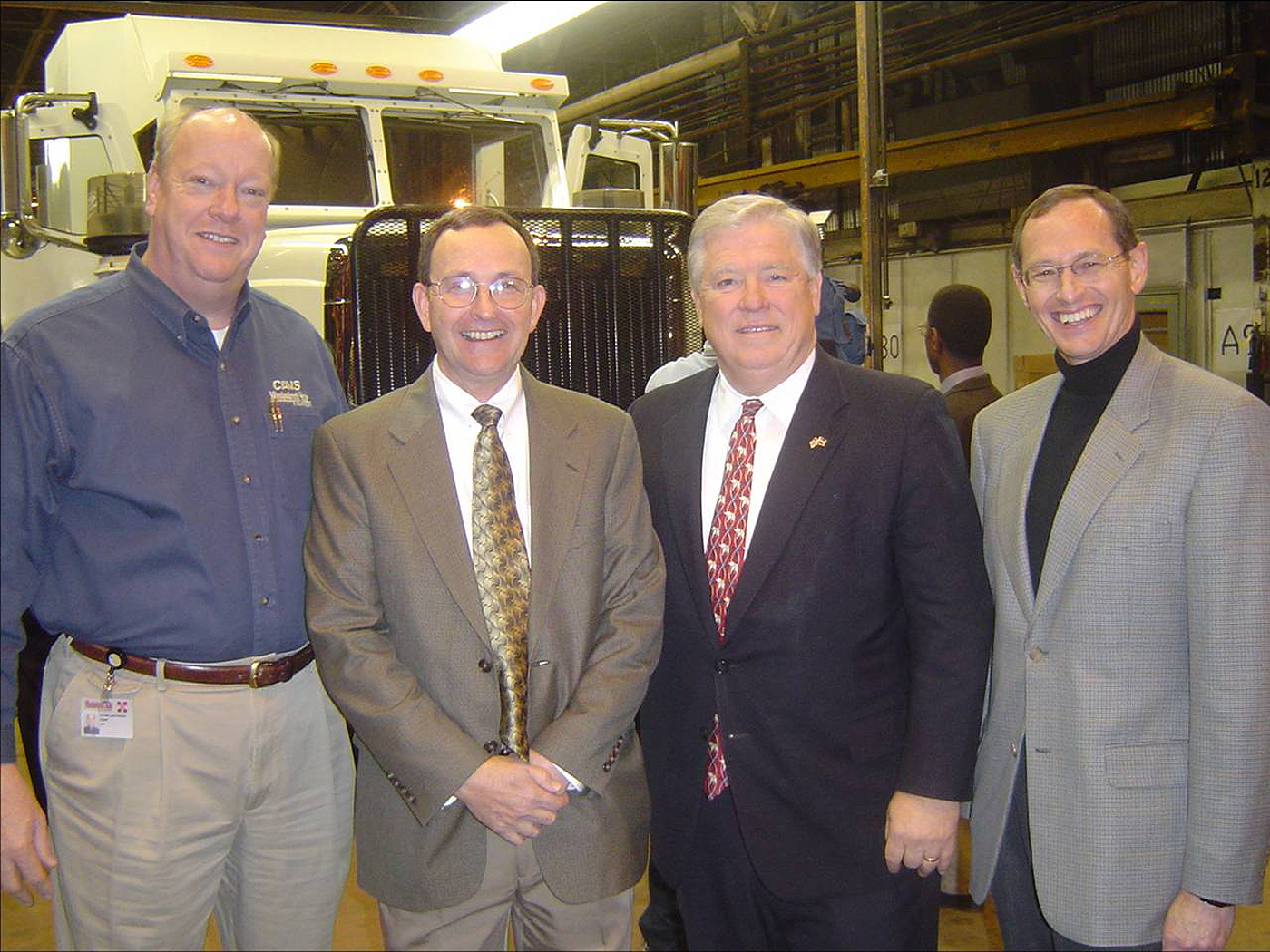Contact: Phil Hearn

STARKVILLE, Miss.--Mississippi State engineers are providing vital support in the design and start-up of a new West Point industry that soon will begin manufacturing cabs for armored vehicles.
The university's Center for Advanced Vehicular Systems is helping Griffin Inc. transform 150,000 square feet of available space in the former Babcock & Wilcox facility into a plant that will produce armored cabs for International Truck and Engine Corp.
Engineers at the CAVS Extension facility in Canton designed the manufacturing facility and will help implement production systems. The plant is expected to add 175-200 jobs to the Golden Triangle-area economy when it reaches full speed in about a month.
Gov. Haley Barbour and 1st District Congressman Roger Wicker, R-Miss., joined West Point Mayor Scott Ross, Griffin president Greg McKay, CAVS director Rand German and others at the recent ribbon-cutting ceremony officially opening the plant.
"CAVS has done a wonderful job by increasing the competitiveness of Griffin and International Truck and Engine in the armored military vehicle market," said Ross. "The company is hiring now, primarily welders and fitters."
Glenn Dennis, manager for manufacturing and quality processes at the CAVS Extension facility in Canton, estimated the final cost of renovating and equipping the West Point facility will range from $750,000-$1 million.
"While this project is automotive related, we work with many different types of industries--such as copper fittings, furniture and shipbuilding," he added. "CAVS has tremendous resources that are available to Mississippi manufacturers."
Griffin Inc., located in Byhalia, is a leading manufacturer of armored vehicles in the cash transit industry, with customers in 25 countries. International Truck is the operating company of Navistar International Corp.
Cabs finished in West Point will be transported to International Truck's Garland, Texas, assembly plant to be mounted onto a heavy-duty chassis.
CAVS became involved in the project last summer after International Truck's military business strategic development manager, Dave Creasap, requested engineering assistance. Ross, also a member of the state College Board, put Creasap in contact with Colin Scanes, MSU's vice president for research, who in turn referred him to CAVS Extension director Dean Norman.
"Mississippi State is making major contributions to the future of Mississippi," said Scanes. "Our goal is to see the university strengthen its ability to contribute to economic growth and improve the quality of life for the people of the state."
The CAVS Extension team led by Dennis developed a proposal within a tight, eight-week schedule that addressed feasible facility layout, operations descriptions for each work station, material locations, equipment specifications, manpower recommendations, process flow map, and a high-level implementation plan.
"The CAVS team took on the assignment to construct our manufacturing process as well as aid in the implementation of the plan," said Creasap. "To date, we have been able to design and install 90 percent of the factory equipment, provide instructions to manufacture the product to the workers--and all within our timing and budget.
"We now face our biggest challenge in building our first product within the next two weeks," he added.
CAVS is a research center associated with the Bagley College of Engineering, which is led by Dean Kirk Schulz. The center was created by the Mississippi Legislature in 2001 to provide research and development of solutions for regional automotive manufacturers, such as Nissan Corp. in Canton and other industries.
German, who took over as director last summer, said establishment of the West Point plant is an important part of CAVS's "program to have a balanced portfolio of short-range and long-range successes."
He said a Showcase Day scheduled for March 9 at the CAVS facility--located at Starkville's Thad Cochran Research, Technology and Economic Development Park--will give business and industry officials an overview of available CAVS resources.
For more information, contact Julie Lemons at (662) 325-8098 or jlemons@engr.msstate.edu.